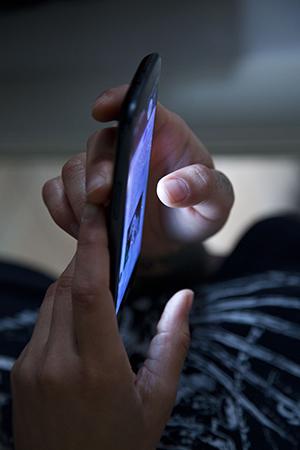 By Nathan Krahn, LCPC, CSAT, CMAT, and Gregory Skibinski LCPC, CADC, CSAT, CMAT, Agape Counseling Ltd
By Nathan Krahn, LCPC, CSAT, CMAT, and Gregory Skibinski LCPC, CADC, CSAT, CMAT, Agape Counseling Ltd
Let’s play a word association game. Take a moment to consider the feelings and emotions the following words bring up for you. Ready? OK, just two words: Pornography and Masturbation.
What emotions are you aware of? Anger? Confusion? Excitement? Shame? Hopelessness? Regardless of what arises for you, one thing is certain: part of living in the age of immediate access to everything is that those two words can no longer be easily dismissed or ignored. There is no demographic for which pornography consumption is not an issue, and its use is increasing. According to Juniper Research, by 2017, a quarter of a billion people are expected to be accessing mobile adult content from their phones or tablets, an increase of more than 30% from 2013. In this article, we want to explain how pornography becomes so addictive for many people, and, more importantly, to provide encouragement that there is hope and healing if you or someone in your life is caught in this behavior and wants to stop.
The late Dr. Al Cooper, a clinical psychologist and researcher at Stanford University, described Internet pornography as the “crack cocaine of sexual addiction.” He noted “three As” that contribute to Internet pornography quickly becoming an addiction for some individuals:
- Accessibility: For the majority of Americans, pornography is available 24/7 in a variety of forms, including PCs, tablets, and phones.
- Affordability: Pornography is often free and can be “stashed” for use at a later date if desired.
- Anonymity: Internet privacy issues aside, accessing pornography online has removed much of the previous obstacles to obtaining pornography: e.g., driving to the part of town the “adult stores” are at and hoping no one sees you.
Another contributing factor to Internet pornography’s addictive qualities is that it can be quickly tailored to specific fantasies. A sexual situation can go from an individual’s imagination to watching video images in a matter of a few mouse clicks. One of the developing areas in the field of addiction research and treatment is the understanding of how this instant gratification impacts the brain. The integration of neuroscience into our field is helping us to see addiction not solely from a behavioral perspective, but also in regards to how an individual’s behavior is physically changing his/her brain. Put very simply, what we experience changes our brain. For those seeking help and healing with pornography addiction, this means that the healing process is truly an emotional, spiritual, and physical process.
So where does the process of healing for those addicted to pornography start? For most of our clients, shame is a significant initial barrier to getting the help they need. Shame is the story we tell ourselves that we are bad people and unworthy of belonging because of the things we have done. Sex addicts often report hating themselves for their behavior and making repeated vows to stop, only to repeat the despised behavior again and again. This cycle of shame perpetuates the idea in the addict’s mind that they will be rejected if their story is really known. A step of courage is the first thing required of addicts on the journey toward healing — courage to fully acknowledge that they have a problem they need help with, and courage to consider the truth that their story does not have to be defined by shame. It can be re-written.
For more information, please contact Agape Counseling, 309-663-2229. They are a group of Christian counselors, social workers, psychologists and support staff committed to a therapeutic process which ministers to the whole person. Their Bloomington office is located at 211 N. Veterans Parkway, (next to Krispy Kreme). They also have offices in Peoria and Morton, or visit online at www.agapecounselors.net.
Sources available on request.
